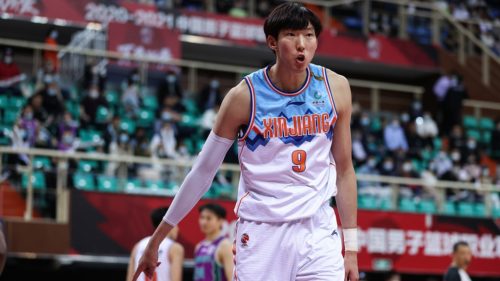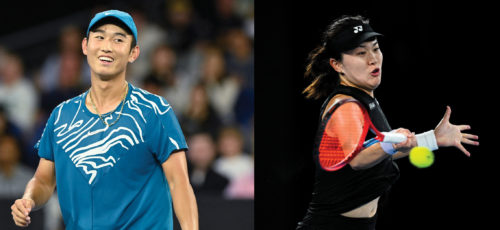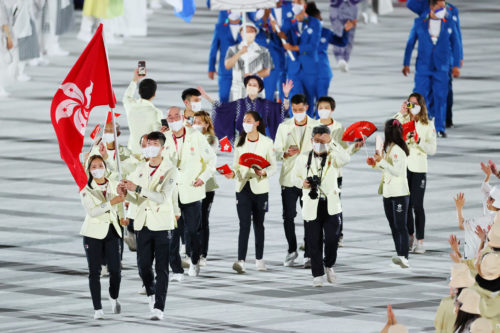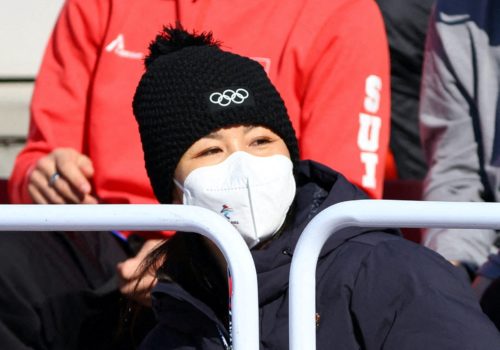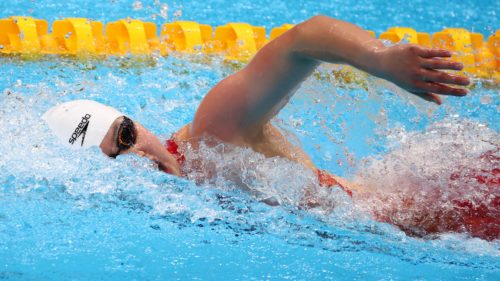The Beijing 2022 Olympics are over. How will they be remembered?
China's nine gold medals are its most ever at a Winter Olympics. But beyond the sporting accomplishments, the legacy of these Games isn't clear.
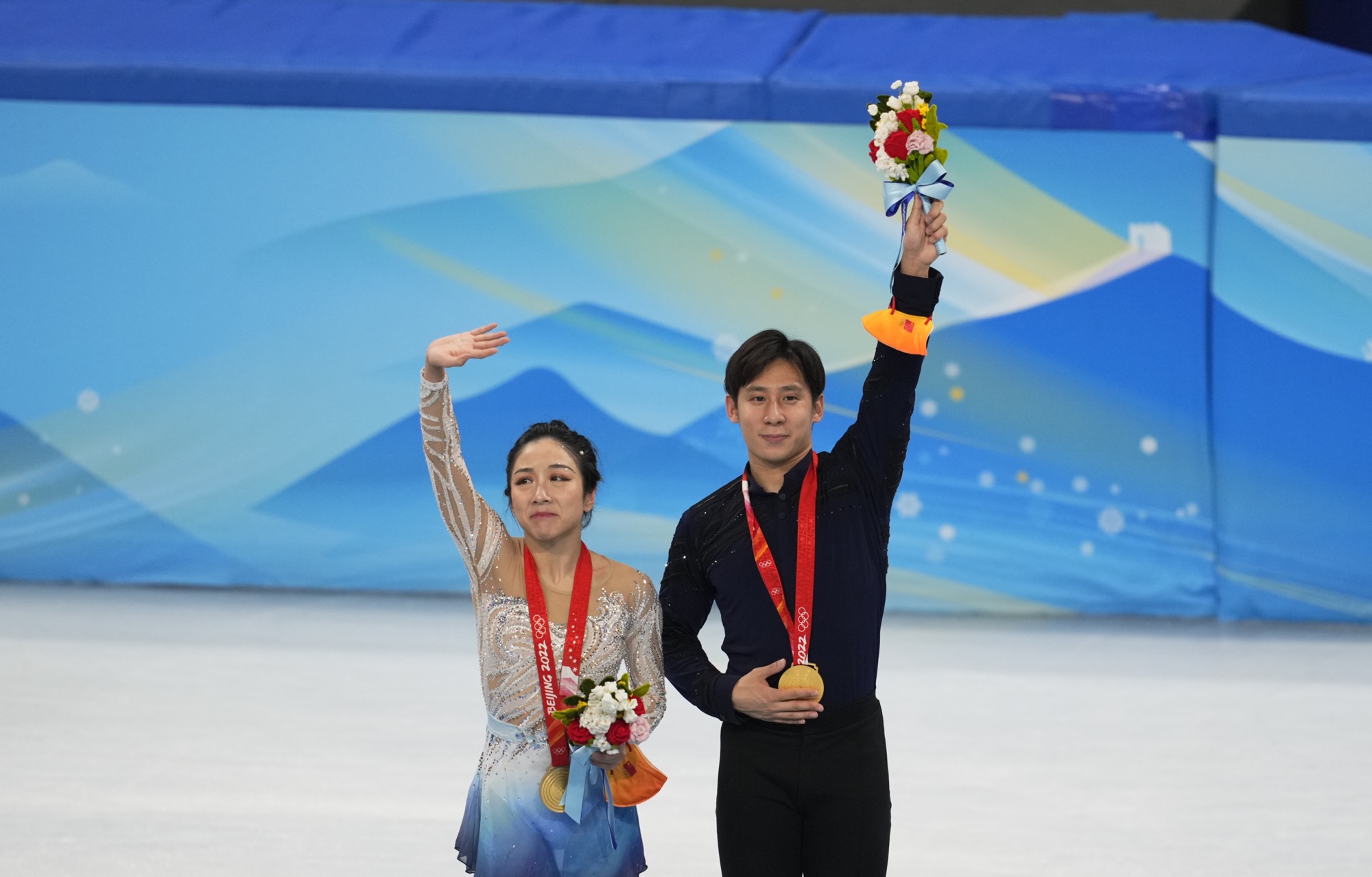
China picked up four gold medals in the final week of Olympic competition, giving the country its best-ever finish at a Winter Olympics. Its nine golds were more than the U.S. and Canada; only Norway (16) and Germany (12) had more. China’s previous benchmark was set at Vancouver 2010, when it won five golds.
Adding to Xú Mèngtáo’s 徐梦桃 superb gold at the start of last week, Qí Guǎngpú 齐广璞 steamrolled the competition in the men’s aerials, finishing more than 12 points ahead of second place. Here’s his jump that landed him in first, a back double full-full-double full that scored a 129:
The 31-year-old Qi barely missed out on gold in the team event last week. Like Xu, Beijing 2022 was his fourth Olympics; he previously finished fourth, seventh, and seventh.
China’s aerial skiers have now established themselves as the premier program in the sport, after they disappointed in Pyeongchang.
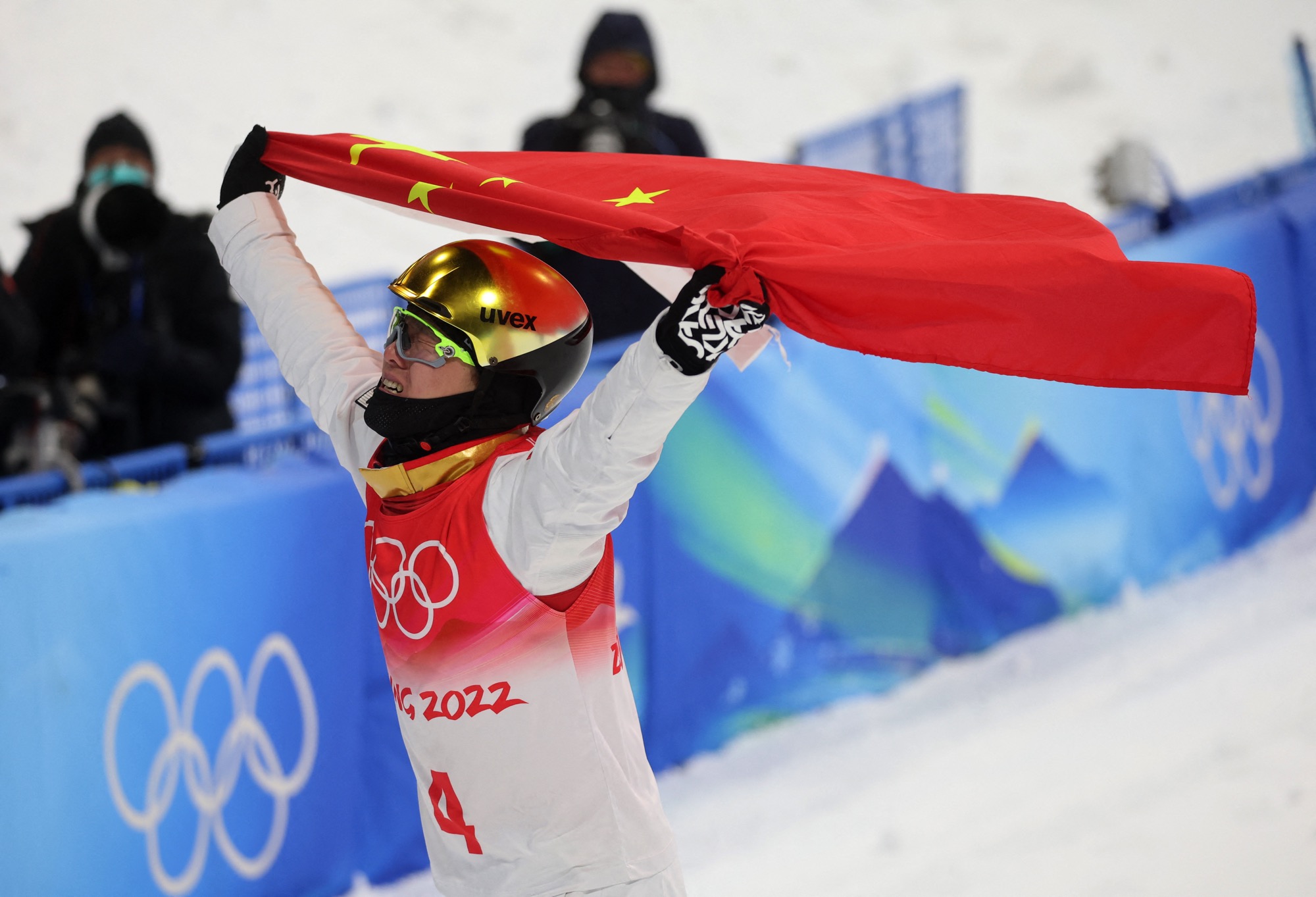
Meanwhile, Eileen Gu (谷爱凌 Gǔ Àilíng) dominated the halfpipe competition to win her second gold medal, following her gold in big air and silver in slopestyle. After laying down a winning run on her first attempt and improving it in her second, Gu was able to ski out the third after her closest competitors were left in her wake.
The final gold came from the figure skating duo of Hán Cōng 韩聪 and Suí Wénjìng 隋文静.
After breaking the world record with their short performance on Friday, Han and Sui entered the final free skate the following day needing to overtake Russian skaters, who occupied the top three places.
Performing their “Bridge over Troubled Water” routine, the same performance that saw them miss out on gold four years earlier by just 0.43 points, Han and Sui turned in a near-flawless performance, with only a single triple Salchow being downgraded. Their score of 155.47 surpassed the Russian score of 155 to give China a dramatic final gold medal.
Other results we were watching for:
Chinese speed skater Rèn Ziwēi 任子威, who already has two gold medals, was disqualified during the semifinal of the men’s 1,500-meter short-track race on Wednesday.
That same day, Ren also participated in the men’s 5,000-meter relay. China got the spot in controversial fashion, but couldn’t capitalize, finishing fifth.
Snowboarder Róng Gé 荣格 finished fifth in the women’s big air competition, marking China’s best-ever result. She then delightfully flipped over a barrier. “It was a classic moment of both sporting brilliance and also the drama and fun that can often come with it,” according to Eurosport. “The fact that Rong embraced the fall, was unharmed and also got the crowd involved made it all the better.”
~
What is the legacy of Beijing 2022?

When China won the bid for the 2022 Winter Olympics, it did so with the promise that it would inspire 300 million people to take up Winter sports.
In the months leading up to the Games, Chinese state media frequently reported that up to 340 million people in China had now participated in winter sports. While the numbers are suspect, it is inarguable that the arrival of the Winter Games has inspired Chinese people to take to the ice and snow in record numbers.
Ski hills that surround the capital have seen an explosion in participation. Anecdotally, during my time in Beijing, local ski hills would attract a few hundred people on a weekend, but now they’re packed with thousands. Speaking to friends who run a ski shop in Ciqikou in a clapped-out old mall that has been occupied by ski and snowboard shops, they have seen record numbers of foot traffic.
More importantly, the highest proportion of growth has been among people aged 18-30, according to the National Bureau of Statistics. If even a fraction of these people take up winter sports in the long term, Beijing’s legacy will be secure. With the success of young marketable athletes such as Sū Yìmíng 苏翊鸣 and, of course, Eileen Gu, it’s hard to see how China doesn’t continue its legacy into Milan-Cortina in four years’ time.
At the closing ceremony, IOC President Thomas Bach closed the Games by “welcoming China as a winter sports country.”
While the sporting legacy is clear for all to see, the political legacy remains murkier.
While 2008 was a great coming out party of the country, representing China’s new friendly and confident face to the world, Beijing 2022 failed to continue that legacy. The lead-up to these “closed-loop Games” saw an unprecedented amount of coverage dedicated to the human rights abuses of the Chinese Communist Party, from Xinjiang to Hong Kong, while questions swirled over Péng Shuài 彭帅 and censorship. “China celebrates a joyless triumph,” says the New York Times, while the China Media Project points out the “Olympic legacy of media control.” Swedish speed skater Nils Van Der Poel, who won two gold medals in Beijing, said it was “terrible” to have the Olympics awarded to China.
While Beijing 2008 is remembered for the heroics of the athletes, such as Usain Bolt and Michael Phelps, these Winter Olympics may be better remembered for the controversy that has surrounded them from the start.
~
Other Stories:
Highlights from the closing ceremony (ESPN)
China Loves Eileen Gu. But It’s Getting Complicated (Wall Street Journal)
Exclusive: China’s long, strange Olympic hockey trip ends, next stop uncertain (Reuters)
The Olympians Caught Up in the U.S.-China Rivalry (New York Times)
Athletes Chime in About Olympic Food on Offer in Beijing (Radii)
Bing Dwen Dwen, the mascot for the 2022 Beijing Winter Olympics, is in big demand (Today)
FCCC Statement on Olympics Reporting (Foreign Correspondents’ Club of China)
This time, Tibet stands silent as Olympics return to China (Associated Press)
Translation: China’s invisible disabled community (China Digital Times)
NFL’s Super Bowl Halftime Viewed More Than 3 Million Times in China (Radii)
More Beijing 2022 coverage is here. The China Sports Column runs every week.

